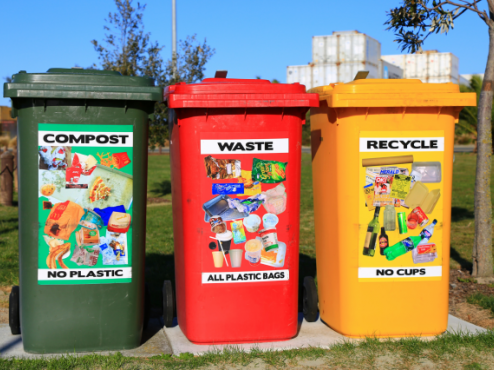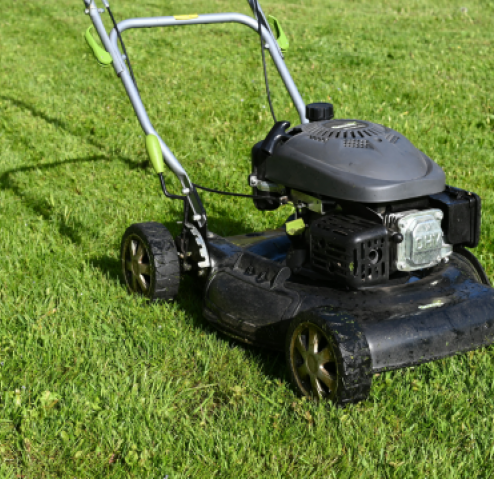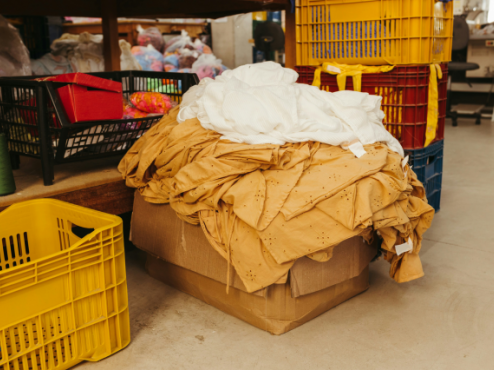Everything You Need to Know About Recycling Old Lawn Mowers
Lawn mowers are essential tools in maintaining a lush, well-groomed lawn, but like any other machine, they don’t last forever. Whether due to mechanical issues or the desire to upgrade, eventually, every lawn mower reaches the end of its usable life. While simply discarding an old mower might seem like the easiest option, this is far from environmentally friendly. Recycling old lawn mowers not only conserves resources but also helps reduce pollution and landfill waste. Here, we’ll explore the ins and outs of lawn mower recycling, including the steps, benefits, and options available.
1. Why Should You Recycle an Old Lawn Mower?
Recycling old lawn mowers is beneficial to both the environment and the economy. These machines are typically constructed from metals and other materials that can be repurposed into new products, reducing the demand for raw materials. Lawn mowers often contain parts that can leak harmful substances, such as oil and gasoline, into the soil and water, which makes proper disposal essential for preventing environmental contamination. Some reasons to consider recycling include:
- Environmental conservation: Metals, plastics, and other materials can be reclaimed and reused.
- Pollution prevention: Proper recycling prevents the release of toxic substances.
- Economic value: Recycled materials can lower manufacturing costs, which benefits industries and consumers alike.
2. Steps to Prepare Your Lawn Mower for Recycling
Recycling a lawn mower involves some preparation to ensure it is safe and acceptable for recycling facilities.
a. Drain the Fluids
Most lawn mowers use gasoline and oil, which are hazardous if not disposed of properly. Here’s how to manage these:
- Drain the gasoline: Remove the gas tank and pour any remaining gasoline into an appropriate container for disposal or reuse in other gas-powered equipment.
- Dispose of the oil: Place the lawn mower on a flat surface, remove the oil reservoir cap, and drain the oil into a container for recycling at an automotive shop or hazardous waste disposal center.
b. Remove Batteries and Spark Plugs
Many newer lawn mowers come with rechargeable batteries. These batteries should be removed and recycled separately, as they contain heavy metals and chemicals. Spark plugs, while small, should also be taken out and disposed of properly.
c. Clean the Lawn Mower
Give your lawn mower a quick clean-up to remove dirt and debris. A clean mower is easier for recycling centers to process, and removing organic matter also prevents the spread of invasive plant seeds.
3. Options for Recycling Your Old Lawn Mower
There are various methods to recycle your old lawn mower, depending on local facilities, mower condition, and your recycling goals.
a. Drop-off at a Scrap Metal Recycler
Lawn mowers are largely made of metal, making them ideal for scrap metal recycling. Locate a nearby recycling center or scrap yard that accepts lawn mowers. Most centers will take your machine for free or offer a small sum for the scrap metal, as long as it’s properly prepared (i.e., drained of fluids).
b. Contact Your Local Waste Management Facility
Some municipalities provide special collection services or designated drop-off locations for large appliances, including lawn mowers. Check with your local waste management office to see if they offer recycling services for lawn equipment.
c. Trade-In Programs and Retailer Recycling Services
Some retailers and manufacturers offer trade-in programs, especially for battery-powered mowers. When you buy a new lawn mower, ask if the retailer can recycle your old one. Retailers like Home Depot, Lowe’s, and others sometimes partner with recycling programs for old lawn and garden equipment.
d. Donate or Sell Usable Parts
If parts of your lawn mower are still functioning, you might consider selling or donating them. Many lawn care enthusiasts and repair shops buy working parts, such as wheels, handles, or motors, for repairs or DIY projects. You can use platforms like Craigslist or eBay to find interested buyers.
e. Scrap for Parts or DIY Projects
For those who enjoy DIY, lawn mower parts can be repurposed for various projects. The motor, for instance, can be reused for go-karts or other small machines. Repurposing parts keeps them out of landfills and can provide interesting materials for hobby projects.
4. The Importance of Proper Disposal of Hazardous Materials
Lawn mowers contain hazardous materials that require special care during disposal to avoid environmental damage. Here are the most common hazardous components and where they should be disposed of:
- Gasoline: Never dump gasoline down drains or into the ground. Local hazardous waste facilities or some automotive centers may accept used gasoline.
- Oil: Used oil can contaminate vast amounts of water, so take it to an automotive shop or hazardous waste facility.
- Batteries: Some mower batteries contain lead or lithium, which can harm ecosystems. Many recycling centers, electronics stores, or hazardous waste facilities accept these.
- Spark Plugs: While spark plugs are small, they contain metals that should be properly recycled at auto parts stores or metal recycling facilities.
5. Environmental Benefits of Recycling Lawn Mowers
Recycling a lawn mower has a direct positive impact on the environment in several ways:
- Resource Conservation: Recycling recaptures metals, reducing the need for mining new materials.
- Energy Savings: Recycling metals uses significantly less energy than producing new metals.
- Landfill Space: Large items like lawn mowers can occupy significant space in landfills. Recycling minimizes landfill use and prolongs landfill life.
- Pollution Reduction: Proper disposal of hazardous fluids reduces the risk of soil and water contamination.
6. Recycling Different Types of Lawn Mowers
Not all lawn mowers are the same, and the recycling process can vary based on the mower’s power source and design.
a. Gas-Powered Lawn Mowers
Gas-powered mowers are the most common type, and their recycling involves several steps due to fuel, oil, and spark plugs. Ensure these mowers are entirely drained and dismantled, if possible, before taking them to a recycling facility.
b. Electric and Battery-Powered Lawn Mowers
Electric mowers do not contain gasoline or oil, making them simpler to recycle. However, the battery needs to be removed and disposed of at a designated recycling facility. For corded mowers, cut off the power cord and set it aside for metal recycling.
c. Manual Push Mowers
Manual or reel mowers contain no hazardous materials and can be directly recycled as scrap metal. These mowers are the easiest to dispose of, requiring minimal preparation.
7. Common Mistakes to Avoid When Recycling a Lawn Mower
Proper recycling requires some caution. Here are common mistakes to avoid:
- Skipping the Draining Step: Leaving gas or oil in the mower can cause environmental hazards and may lead recycling centers to reject your mower.
- Throwing Batteries in the Trash: Batteries should always be recycled at specific facilities; never put them in general trash as they can leak toxins.
- Assuming Any Metal Recycler Will Accept the Mower: Check in advance with your local recycler, as some facilities may have restrictions on accepting equipment with potentially hazardous materials.
- Ignoring Local Recycling Programs: Many communities offer free or low-cost recycling for items like lawn mowers. Research your options to save time and effort.
8. Final Tips on Recycling Your Lawn Mower
- Research Local Laws and Resources: Regulations on lawn mower disposal vary by location, so it’s wise to check with local waste management facilities.
- Consider Renting or Buying a Sustainable Model: If you’re considering replacing your lawn mower, look for energy-efficient, eco-friendly options, or consider renting if you only need a mower occasionally.
- Ask About Pick-Up Services: Some recycling programs or companies offer pick-up services for large items, which can simplify the recycling process.
Conclusion
Recycling your old lawn mower may seem like a complex process, but it offers environmental benefits and can even save you money in the long run. By draining fluids, removing hazardous components, and choosing a responsible disposal method, you ensure that your lawn mower is recycled safely and efficiently. Not only does this help conserve resources and prevent pollution, but it also contributes to a cleaner and greener community.
Before disposing of your old mower, consider your options. From donating parts to repurposing for DIY projects, there are plenty of ways to give your mower a second life while keeping the planet in mind. The next time you find yourself with a worn-out lawn mower, remember that recycling is a step worth taking—one that benefits both you and the environment.
 How to Recycle and Why You Should Do It
How to Recycle and Why You Should Do It
In today’s world, recycling has become an essential part of protecting our environment and conserving resources.
Read More Everything You Need to Know About Recycling Old Lawn Mowers
Everything You Need to Know About Recycling Old Lawn Mowers
Lawn mowers are essential tools in maintaining a lush, well-groomed lawn, but like any other machine, they don’t last forever.
Read More Bagster vs Dumpster: Buy a Dumpster Bag or Rent a Small Dumpster?
Bagster vs Dumpster: Buy a Dumpster Bag or Rent a Small Dumpster?
When it comes to tackling a significant cleanup project, whether it’s a home renovation, yard work, or just a major decluttering, disposing of the waste efficiently is crucial. Two popular options are buying a Bagster or renting a small dumpster. Both have their pros and cons, and the best choice depends on your specific needs. In this comprehensive guide, we'll compare Bagsters and dumpsters to help you make an informed decision.
Read More Environmental Impact of Refrigerator Recycling
Environmental Impact of Refrigerator Recycling
Refrigerators are essential appliances in households worldwide, but their disposal poses significant environmental challenges. From harmful refrigerants to non-biodegradable materials, improper disposal can have lasting effects on ecosystems. This article explores the environmental impact of refrigerator recycling, highlighting the benefits of proper disposal and recycling practices.
Read More